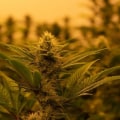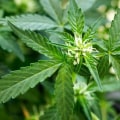Delta 9 can cause severe hallucinations and delusions. The effects of the medication can last up to 12 hours, and users often say that they feel out of control and disconnected from reality. The medication can cause many physical side effects, such as increased heart rate, blood pressure, and panic attacks. Unlike THC delta-9, THC delta-8 is not likely to test positive for THC in a drug test, unless the test specifically looks for the delta-8 metabolites of THC.
Despite their similarities, delta-8 THC and delta-9 THC also have important differences that you should understand before consuming either substance. Depending on quality, quantity and other factors, both delta-8 and delta-9 THC can produce intoxicating psychoactive effects, or a “high”. Delta-8 THC and delta-9 THC come from the cannabis sativa plant, which naturally produces more than 100 cannabinoids or active components. However, if the delta-8 THC product contains concentrations of delta-9 THC, a drug test may test positive for THC.
Surprisingly, the administration of THC after a single dose of CBD had almost the same effect on emotional perception as the treatment with THC after the placebo, as reflected in significantly higher depression and significantly lower extraversion scores. According to the FDA, products with delta-8 THC may contain potentially harmful chemicals or contaminants, including household chemicals that are used during the chemical synthesis process that produces delta-8 THC. Research on the effects of THC (or delta-9-THC) is complicated by many factors, but there is sufficient evidence that THC can be harmful, especially for younger people whose brains are still developing. THC delta-8 and THC delta-9 can produce the positive or adverse effects mentioned above, since both THC delta-8 and THC delta-9 activate the body's CB1 and CB2 cannabinoid receptors, including those in the central nervous system.
Both THC delta-8 and THC delta-9 are composed of the same set of elements (carbon, hydrogen and oxygen), and they only differ slightly in the arrangement of those elements, says Dr. These findings show that acute intake of CBD in and of itself has no effect on healthy volunteers and that a single dose of CBD before the administration of THC was not sufficient to mitigate the harmful impact of THC in a given environment. In addition, it has been speculated that CBD may mitigate some effects of THC or nabilone, a synthetic analog of THC, since CBD reduces anxiety induced by THC (1) and attenuated the impact of psychotomimetic cannabinoids on the reversal of binocular depth (1), episodic memory (20), facial emotional recognition (2) and psychotic symptoms (2) in healthy volunteers. Research on the long-term use of delta-9 THC and its effects on sleep is limited; some studies show an improvement in sleep patterns and others indicate that chronic consumption of delta-9 THC may have the opposite effect, since it disrupts sleep and delays the onset of sleep.
Meanwhile, overstimulation of CB1 receptors through excessive consumption of delta-8 THC or delta-9 THC can cause lethargy, disorientation, anxiety (and, potentially, panic), dry mouth and eyes, increased heart rate and loss of coordination, adds Dr.



